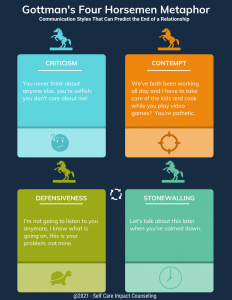
Healing After an Affair: How Couples Counseling Can Help You Recover
Infidelity can deeply hurt a marriage and break trust. However, recovery is possible, and some couples become stronger after working through their issues. If you’re
|
Schedule your Free Consultation or call 720-551-4553 |


At our center, we understand that every relationship faces challenges. With our expert marriage counseling and couples therapy services, we offer a supportive space to explore your relationship issues and discover ways to strengthen your bond. If you’re searching for “marriage counseling near me” or “how to save my marriage through therapy,” you’ve come to the right place.
Our team of licensed professionals specializes in the Gottman Method and Emotionally-Focused Therapy (EFT), two leading approaches in relationship help. We’re here to guide you through the complexities of communication issues, trust rebuilding, and emotional connection. Contact us today for a free consultation to see how our tailored couples therapy can help rejuvenate your relationship.
Are you and your partner stuck in a cycle of arguments and misunderstandings? Do you find yourselves facing the same “communication issues” in your daily interactions? You’re not alone. Many couples experience rough patches, from heated arguments to phases of silence. Our marriage counselors are here to assist, providing you a chance to break free from these negative cycles and rediscover your love.

Our approach to couples therapy is rooted in proven methods like the Gottman Method, which focuses on building conflict resolution skills, and Emotionally-Focused Therapy, which helps couples understand and change their emotional responses. Whether you’re dealing with the aftermath of an affair, substance abuse, or just the fading spark in your relationship, our marriage counselors are equipped to support you.
There are many, many reasons why relationships dissolve, but according to relationship theorist John Gottman, there are four key indicators of upcoming divorce. The two major ones are stonewalling and the second is contempt.
Stonewalling is exactly what it sounds like: when a couple is fighting, one member shuts down, or withdraws. They build an invisible “wall” between them and their spouse, refusing to address the conflict and reconcile their differences. This allows the problems at the heart of their relationship to fester, and leads to serious breakdowns in communication. So, if you and your partner can’t communicate, you can’t understand each other’s feelings. If you can’t understand each other’s feelings, you can’t understand what the other person wants—most importantly, how they want to be loved. Let us help you start to communicate and break through the negativity and friction.
The Role of Contempt
The other major contributor to separation and divorce is contempt. Rather than a breakdown in communication, contempt is essentially a breakdown in respect. Contempt is one person telling another: “I’m superior to you.” It’s deliberately putting someone down—teasing them, critiquing their every move, and using humor as a tool of hostility. Contempt manifests itself in body language—lots of eye-rolling, snickering, and mocking smiles. When two people lose respect for each other, they no longer see each other on equal footing. As a result this makes love between them nearly impossible. Contempt may have been slowly creeping into your relationship for some time, let us help you with that.
Where’s the good news in all this drudgery? Well, the good news is that in order to grow, every healthy relationship has to endure conflict. Though your Facebook feed might suggest otherwise, the couples with the strongest connections are the ones who have struggled together. The selfie-happy husband and wife who flaunt every moment of their romantic daydream all over social media probably aren’t as content as they seem. So, in order for love to deepen, it has to experience pain. The question is: are you actively trying to work through the pain together, or withdrawing from it? Are you trying to understand your partner’s feelings, or putting your partner’s feelings down?
As couples therapists, we understand it’s hard to work through the pain alone. By ourselves, we tend to become fixated on our own subjective reality, our own little world. We often expect other people to behave as we behave, to think as we think. That’s why having a third party with a fresh perspective is so vital to reconciling differences in a relationship.
Embarking on couples therapy can be a journey of discovery and healing, each relationship bringing its unique set of dynamics to the table. Here are some things to consider and what to expect as you begin this transformative process.
Expect the first session, lasting between one to two hours, to dive deep into the essence of your partnership and the recurring patterns that may be causing distress. In this foundational meeting, we aim to unearth the core challenges you face and start sketching out the necessary adjustments to enrich your relationship’s quality. It’s also a prime opportunity to connect with your therapist, ensuring a comfortable and trusting atmosphere for your journey ahead.
In the second session, our focus shifts to individual conversations with each partner. This personal touch allows your therapist to grasp your unique perspectives and contributions to the relationship, acknowledging both the strengths you bring and the hurdles you face.
The third gathering is where the magic begins to unfold. Armed with insights from the previous sessions, we’re prepared to pinpoint where the friction lies and what’s been holding you back. Together, we’ll craft goals and a shared vision for your relationship’s future – a clear, mutual understanding of your aspirations for how your partnership should evolve in feel, look, and essence.
Subsequent Sessions
Following the initial sessions, each meeting is roughly an hour long and customized to address your specific needs and progress. Whether it’s enhancing communication, fostering trust, reigniting intimacy, or tackling other concerns, we’ll proceed at a pace that respects both you and your partner’s comfort levels.
As the therapy concludes, you’ll have a profound understanding of the cycle that has been distancing you from one another. More importantly, you’ll learn how to break free from those entrenched, negative patterns of interaction.
Equipped with the strategies and insights gained through therapy, you’ll possess all the necessary tools to rebuild and maintain the closeness you once cherished in your relationship.
Our services are tailored to meet the unique needs of every individual, celebrating and embracing the diversity of all who seek our support. Our mission is to serve each person with understanding, care, and a personalized approach that honors their distinct journey.
We offer counseling services to all couples – we are happy to help regardless of your marital status or orientation. We are well-versed in a number of different therapeutic approaches, but the two we most commonly use are Gottman’s theory of relationships and Emotionally-Focused Therapy (EFT). Gottman’s theory is a very skills-based approach to relationships that focuses on playing to your strengths to resolve conflict. The EFT approach digs a little deeper. It looks at how understanding a relationship’s negative cycles can prevent them from unconsciously happening again and again.
Our hope is that, by focusing on your strengths, understanding negative patterns of behavior, and learning to reconcile your differences, you really can fall in love again. We don’t mean you’ll never face conflict, or that your marriage will turn into some starry Hollywood daydream. We simply mean you’ll be more prepared and equipped to face conflict when it happens. When we work together, there is nothing we can’t accomplish.
If relationships grow by working through conflict, think of couples counseling as just another step in that continual process of growth. Far from a sign of giving up, going to therapy is a sign of commitment. It shows you’re actively committed to saving your relationship. It shows you love your significant other enough to invest time and money in preserving your love for them. That being said, if you do want a divorce or break up, we offer separation and divorce counseling. We will wholeheartedly support you either way.
Does Marriage Counseling work? Yes, it absolutely can. Studies have repeatedly shown that couples therapy, using a Gottman-centered approach, leads to greater marital intimacy and satisfaction. The beauty of Gottman’s theory is that it gives you specific skills to utilize in the midst of conflict. On our own, we tend to resort to the same old behavioral patterns and ways of thinking. Gottman’s approach focuses on giving you techniques to replace these entrenched habits.
When it comes to couples therapy, insurance generally doesn’t cover it. Federal laws like the Affordable Care Act and the Mental Health Parity and Addiction Equity Act require insurance companies to treat mental health conditions the same as physical health ones, ensuring equitable coverage. However, couples therapy is not typically covered because it isn’t classified as a medical diagnosis. Mental health parity laws only cover conditions with medical diagnoses, excluding marriage counseling. Read more in this blog article.
As devastating as an affair can be, therapy can still help. No relationship is ever beyond the point of healing. You’d be surprised how many couples rebound from a cheating problem. Likewise with substance abuse; the real issue is not the drinking or drug addiction itself, but failing to address the underlying problem behind it. With the right communication and awareness of negative cycles, we are confident you and your partner can rebound.
Yes – relationships are complicated and if you are undecided, Discernment Counseling can be helpful. We’d like to help find the best solution that makes each individual partner happier in the long run.
Don’t wait to improve your relationship. If you’re looking for effective “couples therapy for communication issues” or need “relationship help” in Lakewood and Longmont, give us a call at 720-551-4553 for a free 20-minute phone consultation. You can also book your appointment via email or through our online scheduling system.

Infidelity can deeply hurt a marriage and break trust. However, recovery is possible, and some couples become stronger after working through their issues. If you’re

Sweet texts are a wonderful way for busy couples to stay connected and keep the romance alive. In the hustle and bustle of daily life,

Relationships can suffer for many, many reasons. There is one factor, however, that stands out as a predictor of trouble. That is contempt. None other

When it comes to couples therapy, insurance generally doesn’t cover it. Federal laws like the Affordable Care Act and the Mental Health Parity and Addiction

Have you ever asked yourself why you keep doing a certain thing even though it keeps hurting you? The answer is quite simple. It keeps
